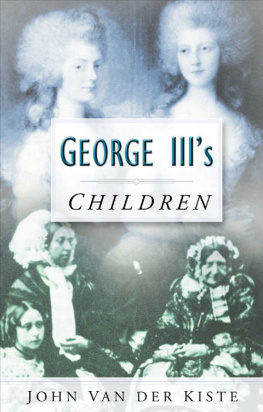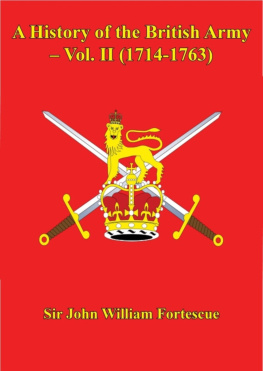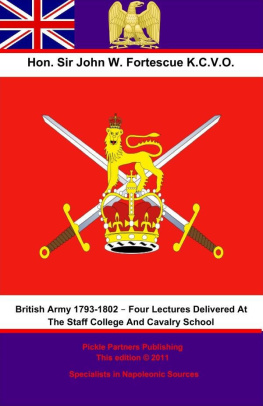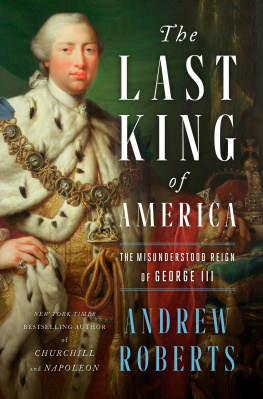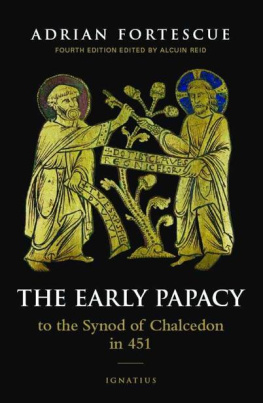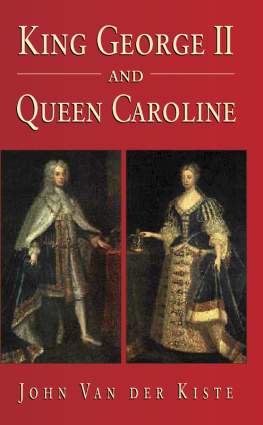INTRODUCTION
THE earliest important papers in this volume relate to Lord Norths Civil Service accounts (3714, 3715, 3753), the story of which does not end until later than the period embraced in these pages, but may still be completed in some future volume. Current political business is resumed when Lord Shelburne sends the King a copy of the bill for excluding contractors from the House of Commons (3718) ; and the King in his answer takes occasion to lament the precipitancy of Fox as a negotiator and his eagerness to yield American Independence unconditionally (3719). It should certainly seem to be wise as a general principle, when a treaty is in question, to be ready indeed to make concessions, but to withhold the grant of them until concessions can be asked in return, for a treaty is after all no more than the record of a bargain, and the essence of a bargain is to take as well as to give. Fox, however, seems to have been equally hasty in all affairs, as may be seen from the rather irritable tone of his letter to the King about the prosecution of Sir Thomas Rumbold and East Indian matters generally (3725), concerning which Shelburne took a more temperate view (3739). Meanwhile, as several documents remind us, the war was still going on, and there were high hopes of a great engagement with the Dutch at sea (3721, 3731-3734, 3740) ; but at the same time a lucrative place fell vacant, and there was much correspondence as to who should fill it (3736-3738), Shelburne and Rockingham being apparently at variance (3738, 3743, 3745-3747) over what the King rather contemptuously styled the competition in the Spencer family (3744).
Welcome news arrived in the second week of May of successful attacks in the Dutch settlements in the East Indies (3749), which it was hoped would make both France and Holland more tractable (3750, 3752) ; and almost immediately afterwards came the intelligence of Rodneys great victory at the battle of the Saints, which encouraged Ministers to give a new turn to the negotiations for peace (3757-3758). The King did not expect much from it (3760), and meanwhile there was copious discussion as to the reward that should be conferred on Rodney (3759, 3761, 3762, 3765). Keppel wished to institute a Naval Order of Merit, which was frowned upon by the King ; and it is somewhat curious that when the Order of Merit was instituted by King Edward VII. in 1902, the first naval officer to receive it was another Keppel, Lord Keppels great-great-nephew. An English barony being proposed for Rodney, the King at once suspected that Lord Keppel wished to create a vacancy for the City of Westminster in the Commons ; to which Shelburne rejoined that the vacancy would probably be filled by Mr. Pitt, and that an opportunity might offer for gaining Mr. Pitt. I own, he wrote, I should desire very much that Mr. Pitt should feel himself somewhat obliged to your Majesty, and I think it material to your service (3765), and the King fully appreciated the point (3768).
The negotiations for peace now became more active. The documents concerned with them begin to fill the greater portion of the pages for a time, Fox having ascertained that America was prepared to make a separate peace with England, irrespective of France, Spain and Holland (3771). The King, deeply distrustful of Franklin, was sceptical of such a prospect, and openly answered that he would hear what Shelburne had to say before committing himself to any opinion (3772). Shelburne presently reassured the King by telling him that the independence of America would not be granted except as the price of peacea dreadful price as the King mournfully commented (3777, 3778). Then came a little interlude. Influenza was raging at this time ; Shelburne fell victim to it ; and before he could recover, he was involved in wrangles with his colleagues over two matters of patronagethe appointments of Governor of Portsmouth and Governor-General of India (3782, 3783, 3789-3793). Poor Rockingham was a dying man, but a question of patronage could always infuse temporary life into him. In the midst of these comparative trifles the King pressed for the relief of Gibraltar, which the Admiralty, represented by Keppel, either could not or would not attend to (3797). Franklin, it seems, was dabbling with Gibraltar as part of a scheme for a general peace, which he thought should embody all separate peaces, if such were made ; a project which was steadily discouraged by the King (3808). At the same time, the reported departure of two French princes of the blood to the siege of Gibraltar pointed to the probability of a serious attack (3807)the great attack, in fact, which was actually delivered on the 13th of September. Indeed the intentions of France at the end of June seemed to be by no means pacific (3819). The King stirred up Keppel to prepare to meet the combined fleets of France and Spain (3819), and Fox grasped eagerly at the hope of making a treaty with Russia (3821). On the 30th of June Rockingham was known to be dying, and Shelburne wrote to the King to warn him of the two issues which his death would certainly raise: (1) whether the independence of America should be a condition of peace or not ; (2) what should be the position of Fox in a new Ministry (3824).
Rockingham died on the 1st of July, and the King complained that the knowledge of his desperate state had been concealed both from Shelburne and himself (3825). He then appointed Shelburne First Lord of the Treasury, with instructions to consult Grafton and Thurlow as to the formation of a new Government (3828). Fox alone showed any ill-humour over the new arrangement (3830), and resigned, carrying Lord John Cavendish, the Duke of Portland, and some minor officials with him. The course of Shelburnes proceedings may be followed in his letters, and those of others (3831-3834, 3837-3843, 3846, 3847), which close with two rather mysterious references to Fox (3853, 3854) ; and then we come upon the first minute of the new Cabinet, with Mr. Pitt as Chancellor of the Exchequer, and Thomas Townshend and Lord Grantham as Secretaries of State (3855). As Lord Temple had been appointed Lord-Lieutenant of Ireland, and had taken his brother William as Chief Secretary, the clique of Pitt and Grenville was strong in the new Government, though Thomas Grenville had been recalled from his mission in Paris to avert a breach in the precious family (3842).
The negotiations were now forwarded by summoning Alleyne Fitzherbert from Brussels to Paris in place of Thomas Grenville (3856), and giving Richard Oswald a definite commission to treat with the American delegates (3859). Arrangements for the withdrawal of the English garrison from America show that American independence, though it was to be conditional, was to be not the less real (3864) ; and meanwhile Shelburne did not forget Gibraltar (3862, 3863). The King then approached North in order to gain his support in the Commons in the contest which was to decide whether the sole direction of my kingdoms shall be trusted in the hands of Mr. Fox (3872,




